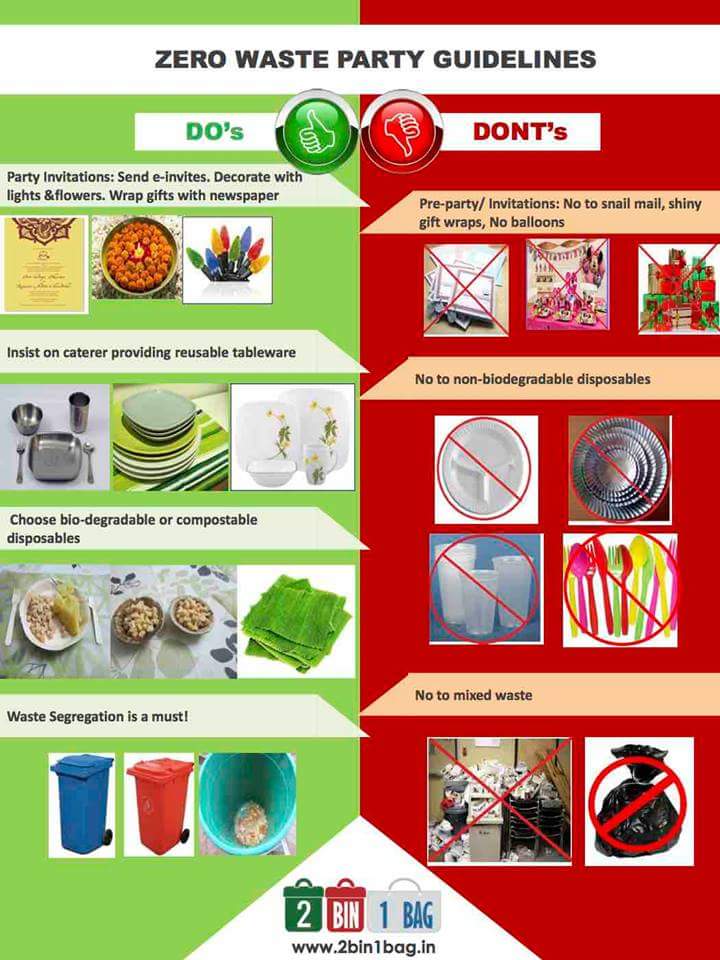
It’s Deepavali again and once again debates are raging about whether or not one should burst crackers. The first I heard about this was at a school assembly a few years ago. One senior student focused her presentation on the problem of child labour in factories that make fireworks. But there are other arguments circulating such as air and noise pollution, the effect it has on animals (sometimes injured, oftentimes scared). Of course, there’s also the good, old fashioned pollution that one finds on her street the morning after the crackers have been burst. All of this will end up mixing with other sources of organic and inorganic waste and thus is necessarily destined for landfills.
Funnily enough, I’ve seen very little discussion about the other aspects of Diwali that should be reconsidered. Traditionally, in addition to bursting crackers (which seems to have quite a long and interesting history), Diwali was the day where everyone got new clothes and ate lots of food that was richer food than the usual, austere dishes served. Today these traditions seem to have been blown out of proportion and, at least to this American observer, it appears that Indians have adopted the American Christmas model of high levels of consumption as a way of celebrating.
It doesn’t matter what you want to buy in the weeks leading up to Diwali. Everyone will have a sale. Signs will be posted all over billboards and the Internet. And it seems that there is an increasing frenzy around shopping for the holidays–though, thankfully, it’s not yet as bad as it is in the U.S. on days like Black Friday.
Still, I can’t help but wonder: is all this shopping really necessary? Certainly one needs diyas, oil, and wicks–but most of us have them in our homes already. And in a society that no longer only purchases new clothes one day a year, do we need new saris and kurtas? Maybe. But I think it might be useful to explore some of our consumption habits and consider other ways to celebrate the holiday without participating in a system of consumption that makes us all contribute to the waste stream in greater numbers. There are plenty of ways people are celebrating Diwali in an eco-friendly manner–here are a few to get you started.





Though I appreciate your thought against consumption and I also advocate for the same, I have some issues with this perception that says this idea of celebration has been taken from the American celebration of Christmas. Please don’t associate Asian cultures with minimalism or lack of celebration.
LikeLike
Sorry if I was unclear. What I am suggesting is that this new fangled let’s-go-to-the mall and shop till you drop mentality that I see taking over Indian cities is like the way Americans celebrate Christmas.
LikeLike
I understand that. And you don’t have to be sorry, please. Even I hate rampant consumerism but there’s a reason why people do that during Diwali. On Diwali, we worship goddess Lakshmi who represents wealth and prosperity. That’s why we clean every nook and corner of our house and decorate it with lights, diyas and rangoli so that it looks welcoming to the goddess. Just a day before Diwali there’s a sister festival called Dhanteras which literally translates as wealth. There’s a ritual of buying some valuable thing on Dhanteras and offer it to goddess Lakshmi on Diwali. Earlier people used to buy gold coins and ornaments but due to rising gold prices and excessive consumerism, that has been replaced by electronics and other utility goods
LikeLiked by 1 person
I think I fell out of love with bursting crackers more than 30 years ago. I hated bombs anyway; I could not figure out why the sound was needed in the festival of lights. Anyway, all these years, at the family gathering, I used to agree to burst just one cracker (usually a rocket), just for tradition’s sake. I’ve realised how pointless this is, and I’m going to refuse to do that tonight!
My aunt’s argument is that the cracker industry provides a lot of employment (let’s not even get into child labour) — my point is: Why can’t the same people be used to make biodegradable detergents, soaps, any utilitarian stuff — all year round?
LikeLiked by 1 person